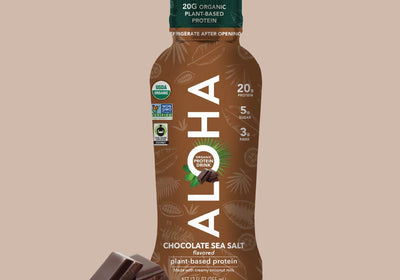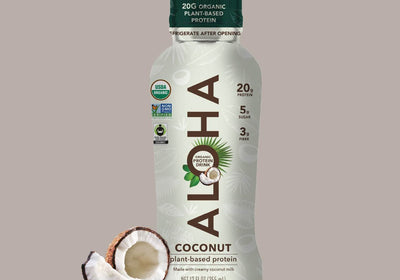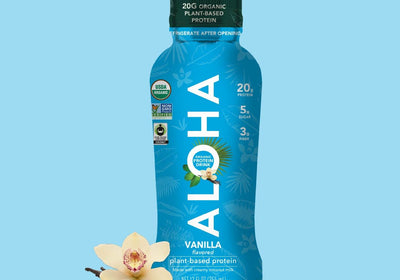Plant-based protein has become an increasingly popular choice for those looking to improve their health, reduce their environmental footprint, or simply enjoy more variety in their diet. Whether you are fully vegan, vegetarian, or just seeking to reduce your consumption of animal products, incorporating plant-based protein can offer numerous benefits. From improved digestion to supporting heart health and weight management, plant-based proteins are a versatile and nutritious option for all lifestyles. Here’s why plant-based protein deserves a place in your diet.
Easier To Digest For Many People
One of the key advantages of plant-based proteins is that they tend to be easier to digest compared to animal-based proteins. Many people find that plant proteins like those from legumes, seeds, and grains are gentler on the digestive system. Unlike certain animal proteins that can be harder to break down and may lead to bloating or discomfort, plant-based options are often naturally rich in fiber, which aids digestion and promotes regularity. This makes plant-based proteins an excellent choice for individuals with digestive sensitivities or those looking to improve gut health.
Rich In Fiber And Nutrients
Plant-based proteins don’t just provide essential amino acids; they also come packed with additional nutrients such as fiber, vitamins, and antioxidants. Foods like beans, lentils, and quinoa deliver protein along with fiber, which helps keep you full and supports heart health by lowering cholesterol levels. Antioxidants found in plant-based foods, such as those in nuts and seeds, help combat oxidative stress and inflammation, contributing to overall wellness. This combination of nutrients makes plant-based protein sources a powerhouse for maintaining a healthy, balanced diet.
Supports Heart Health
Research has shown that diets rich in plant-based proteins are linked to better heart health. Unlike animal proteins, which can be high in saturated fats and cholesterol, plant-based proteins are naturally low in unhealthy fats and free of cholesterol. This can reduce the risk of heart disease, high blood pressure, and other cardiovascular issues. For example, legumes and nuts have been associated with a reduction in LDL (bad) cholesterol levels, making plant-based protein an ideal option for anyone aiming to protect their heart and improve long-term health.
Environmentally Sustainable
Another significant benefit of plant-based proteins is their reduced environmental impact compared to animal-based proteins. Producing plant-based foods typically requires fewer natural resources like water and land, and it generates lower greenhouse gas emissions. By choosing plant-based proteins, individuals can lower their carbon footprint and contribute to more sustainable food systems. This makes plant-based protein not only a health-conscious choice but also an environmentally responsible one, aligning with global efforts to reduce the impact of food production on climate change.
Promotes Overall Wellness
Beyond the specific benefits to digestion, heart health, and weight management, incorporating plant-based proteins into your diet can promote overall wellness. These proteins offer a diverse range of nutrients that support immune function, reduce inflammation, and provide energy for daily activities. Additionally, plant-based diets have been linked to lower risks of chronic diseases such as type 2 diabetes and certain cancers, making plant-based protein a vital component of a long-term, health-focused lifestyle.
Aloha Protein Drinks: A Healthy And Delicious Option
ALOHA protein drinks are designed to offer a perfect balance of health and taste, making them an ideal option for those looking for a plant-based protein source without excess sugar. Here’s a closer look at what makes ALOHA stand out in the market of low sugar protein drinks.
Organic, Plant-Based Protein Sources
ALOHA protein drinks are crafted using 20g of plant-based protein sourced from organic peas and brown rice. These proteins are rich in essential amino acids, ensuring muscle recovery and growth, all while being easy to digest. Plant-based proteins are also environmentally friendly, reducing the ecological footprint compared to animal-derived options.
Naturally Sweetened For Better Health
Unlike many protein drinks loaded with artificial sweeteners or excess sugar, ALOHA uses natural alternatives like monk fruit and stevia. This keeps the sugar content at just 5g per drink while maintaining a pleasant, naturally sweet taste. This approach not only makes the drinks healthier but also ensures they align with a wide variety of dietary preferences, including vegan and keto lifestyles.
Flavor Variety To Satisfy Your Taste Buds
ALOHA protein drinks come in a range of delicious flavors, from Vanilla to Chocolate Sea Salt and Coconut. Each flavor is carefully crafted to provide a satisfying, smooth experience without compromising on taste. Whether you crave something rich and chocolatey or light and tropical, ALOHA has an option for every palate.
Clean Ingredients, No Compromise
ALOHA prioritizes clean, non-GMO, gluten-free, and soy-free ingredients in every product. By using only the highest-quality organic ingredients, ALOHA ensures that each drink is not only nutritious but also free from unnecessary additives and allergens. This makes their drinks an excellent choice for those with specific dietary restrictions or those seeking cleaner food options.
Perfect For Any Time Of Day
ALOHA protein drinks are versatile enough to fit into any part of your day. Whether as a post-workout recovery drink, a quick breakfast on the go, or a healthy afternoon snack, these low sugar beverages provide both convenience and nutrition, helping you stay fueled and energized throughout the day.
Read also:

 collection header image
collection header image
 collection header image
collection header image



